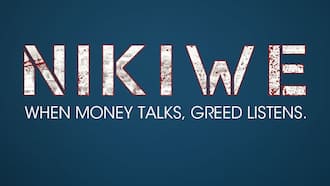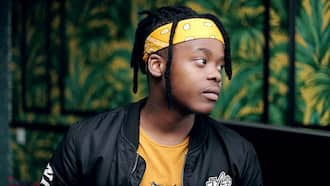Basic Venda words and meanings that you ought to know | Useful phrases
Travel anywhere in South Africa outside Venda, and netizens will convince you that Tshivenda is too hard to master. While the remarks might sound discouraging, what they mean to say is that Tshivenda is in another class. Unlike most South African languages, it does not have any close relatives. As such, it might be trickier for a native Bantu language speaker to learn. Nonetheless, grasping a few basic Venda words and meanings is fundamental in learning the language.
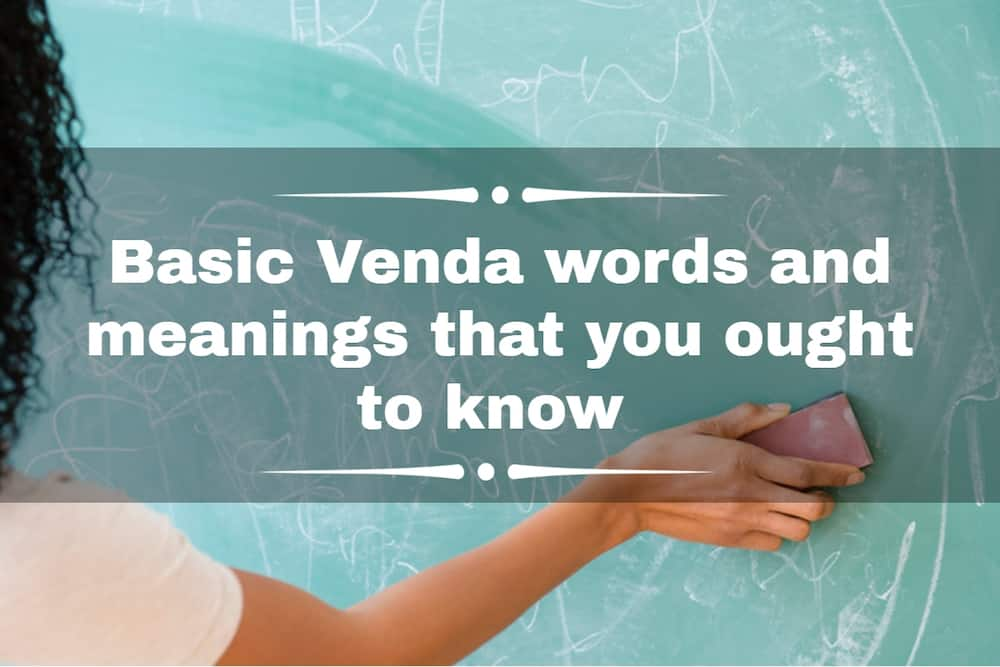
Source: UGC
TABLE OF CONTENTS
The unavailability of diverse learning materials and resources has made it difficult for anyone to learn and grasp Tshivenda. As such, this article intends to bridge the gap. It has compiled basic Venda words and their meanings. By the time you finish going through it, you will have mastered and constructed a sentence or two.
Venda words and meanings
How can I learn to speak Venda? Pronouncing words as they should is the primary step in learning the language. However, that is only possible through audio. A quick tip would be to pay attention to how other people speak and their tonal variation.

Read also
South Africans defend African National Congress Fikile Mbalula from attacks after video went viral
Like most languages, Tshivenda pays attention to pronouns and tenses. Therefore, paying attention to these aspects is vital to communicating effectively. Meanwhile, this list has categorized different basic Venda phrases any beginner should master.
Basic Venda words
If you are addressing anyone in the context of family, these are the basic words you should use:
- Father - Khotsi
- Mother - Mme
- Brother - Mukomana
- Sister - Khaladzi
- Grand parents - Makhulu
Pronouns in Venda
Addressing people using the proper pronouns is integral in any conversation. These are the basic pronouns in Tshivenda:
- I, me - Nne
- You - Inwi
- Him/her/they - Ene, vhone
- Him/her - Ula
- Those/them - Vhala
- There - Fhala
- That, it (for things like animals and objects) - Tshila, tshone
Days of the week in Venda
If your conversation involves the days of the week, this is how you pronounce them in Tshivenda:
- Sunday - Swondaha
- Monday - Musumbuluwo
- Tuesday - Ḽavhuvhili
- Wednesday - Ḽavhuraru
- Thursday - Ḽavhuṋa
- Friday - Ḽavhuṱanu
- Saturday - Mugivhela
Months of the year in Venda
You can never claim to know how to speak Tshivenda if you do not know the months of the year in the language. This is their translation:
- January - Phando
- February - Luhuhi
- March - Ṱhafamuhwe
- April - Lambamai
- May - Shundunthule
- June - Fulwi
- July - Fulwana
- August - Ṱhangule
- September - Khubvumedzi
- October - Tshimedzi
- November - Ḽara
- December - Nyendavhusiku
Times
These are the basic Tshivenda words used to refer to different times:
- Today - Namusi
- Yesterday - Mulovha
- The day before yesterday - Mbamulovha
- Tomorrow - Matshelo
- The day after tomorrow - Mbamatshelo
- Morning - Matsheloni
- Afternoon - Masiari
- Evening - Madekwana/ Vhusiku
- Next week - Vhege I daho
- Next month - Nwedzi u daho
- Next year - Nwaha u daho
Numbers in Venda
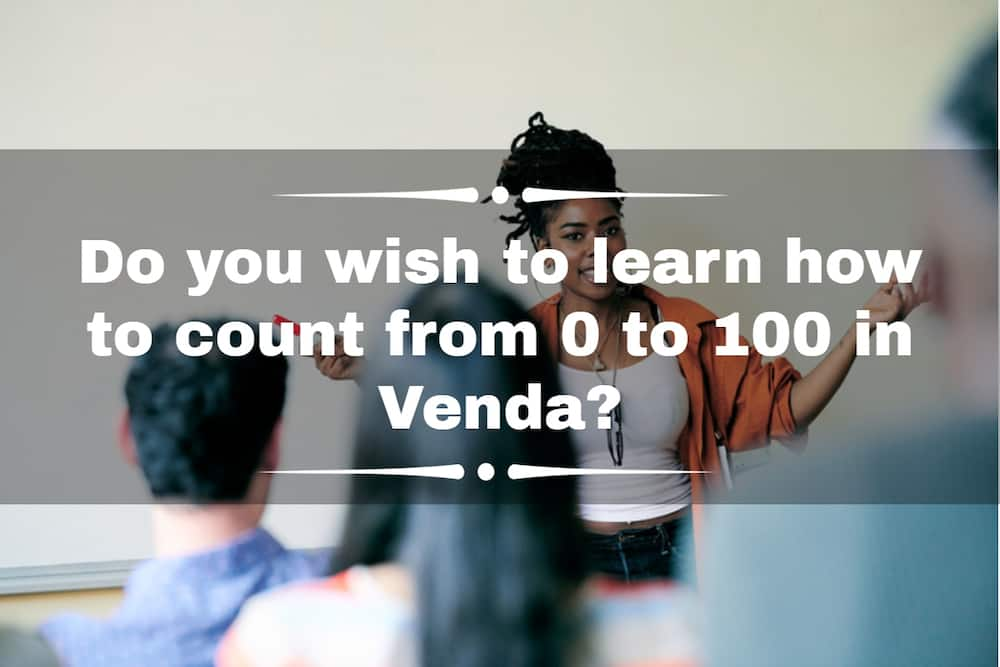
Source: UGC
This list translates numbers from English to the native language:
- One - Thihi
- Two - Mbili
- Three - Raru
- Four - Iṋa
- Five - Thanu
- Six - Rathi
- Seven - Sumbe
- Eight- Malo
- Nine - Tahe
- Ten - Fumi
- Twenty - Fumbili
- Thirty - Furaru
- Forty - Fuiṋa
- Fifty - Fuṱhanu
- Sixty - Furathi
- Seventy - Fusumbe
- Eighty - Fumalo
- Ninety - Fuṱahe
- One hundred - Dana
Directions
If you are talking about directions, these are the Tshivenda words you should use:
- North - Devhula
- South - Tshipembe
- East - Vhubvaduvha
- West - Vhukovhela
Basic Venda words
Courtesy is critical in African culture. So, knowing how to say thank you in Venda is essential. You could say ndo livhuwa or ro livhuwa or ndo livhuwa nga maanda to express gratitude.
Other basic phrases include:
- Yes - Ee
- No - Hai
- Please - Ndi khou tou humbela
- Sorry - Ndi khou humbela pfarelo
- Excuse me - Tshiimo tsha shishi
- How do you say ... in Venda? - Hi pfi ... ndi mini nga Tshivenḓa
- How much is this? - Zwi ita vhugai? Izwi zwi dura vhugai?
- Have a good journey - Vha vhe na lwendo lwavhuḓi
- Have a nice day - Vha vhe na duvha lavhudi
- I am hungry - Ndi na ndala
- Good luck - Mashudu mavhuya
- I understand - Ndi a pfesesa
- I do not understand - A thi pfesesi
- Please say that again - Ndi humbela uri vha dovholole
- Please speak slowly - Ndi humbela uri vha ambe nga u ongolowa
- Do you speak English? - Vha a amba English naa?
- Do you speak Venda? - Vha a amba Tshivenḓa naa?
Saying I am fine in Venda might be a little cliche. You could use the phrases mentioned above depending on the most appropriate context.
Day-to-day Venda words
What are you saying in Venda? If you are conversing in the native language but did not get a word the other party said, you could ask them to repeat by saying, Ni ri mini?
These are other words you will encounter during your day-to-day activities:
- Foods - Zwiliwa
- Water - Madi
- Hunger - Ndala
- House - Nndu
- Gate - Gethe
- Love - Lufuno (I love you- Ndi a ni funa)
- Keep visiting - Ni dale hafhu
If you wish to say I am very tired in Venda, say Ndina ndala.
Greetings in Venda
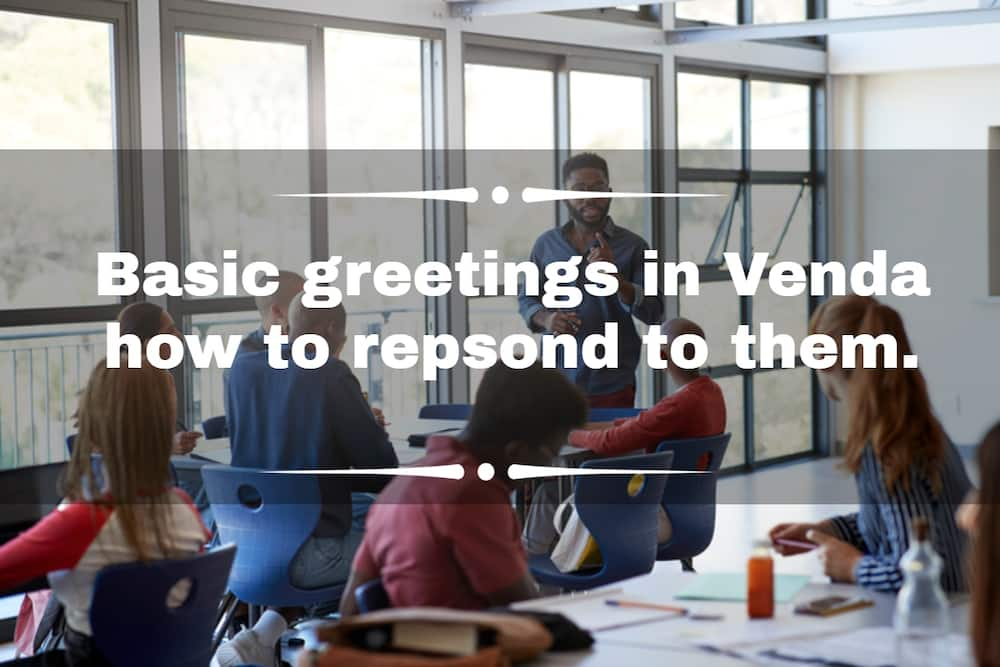
Source: UGC
Greetings play a significant role in stirring conversations. If you wish to say I am fine in the language, you would say, ndi hone.
Saying good morning in Venda is one of the most basic greetings in the language. However, it is not the only one.
- Hello (Male) - Nnda!
- Hello (Female) -Aa!
- Hello! (person) - Hurini! (muthu)
- Hello! (group) - Hurini! (tshigwada)
- Good morning - Ndi Matsheloni
- Good afternoon - Ndi masiari
- Good evening - Ndi madekwana
- How are you? - Hu ita hani? Or Vho vuwa hani?
- Reply to "How are you?" - Ndo vuwa. Vhone? Or Nṋe ndo takala vhukuma. Vhone?
- Pleased to meet you - Ndo takala ro divhana
- What is your name - Dzina lavho ndi nnyi?
- My name is ... - Dzina langa ndi ...
- I am from ... - Ndi bva ...
- I am fine, thanks - Ndi hone, ndo livhuwa
- I could be better - Ndo vuwa zwavhuḓi
- And you? - Inwi?
- I am well - Nṋe ndo takala
- How was your night? - No edela hani?
- I slept well - Ndo edela zwavhudi
- What are you doing? - Ni khou itani?
- I am bored - Ndi khou borea
- How was work? - No shuma hani?
- It was good - Ndo shuma zwavhudi
- Goodbye (person staying) - Ni tshimbile zwavhuḓi
- Goodbye (group staying) - Ni tshimbile zwavhuḓi
- Goodbye (person leaving) - Salani zwavhuḓi
- Goodbye (group leaving) - Hu tshimbilwe zwavhuḓi
How do I say goodnight in Venda? In Tshivenda, this greeting is madekwana a vhudi, or vhusiku ha vhudi.
Body parts
These are body parts in Tshivenda:
- Head - Ṱhoho
- Eye, Eyes - Iṱo, Maṱo
- Ear, Ears - Nḓevhe, Nḓevhe
- Nose - Ningo
- Mouth - Mulomo
- Tongue - Lulimi
- Hand, Hands - Tshanḓa, Zwanḓa
- Arm, Arms - Mukonwo, Mikonwo
- Leg, Legs - Mulenzhe, Milenzhe
- Foot, Feet - Lwayo, Nayo
Chess
If you are an avid fan of Chess, these are the words you should master:
- Chess Piece(s )- Zwipiḓa zwa Chess
- King - Khosi
- Queen - Khosikadzi
- Rook (Castle) - Pfamo
- Bishop - Bishopo
- Knight (Horse) - Bere
- Pawn (Soldier) - Swole
- Board - Bodo
- Square - Tshikwere
- Black - Tshitswu
- White - Tshitshena
- Chess Move(s) - Matambele a Chess
- Check! From Persian Shah (King) - Limuwani!
- Checkmate! From Persian Shah (King) + Māt (Dead) - No kundwa!
- I take your piece - Ndi a ṱula
- Good move! - Matambele avhuḓi!
- I resign! - Ndo kundwa!
- Good luck with the game! - Mashudu mavhuya kha mutambo!
- Thank you for the game! - Ndo livhuwa mutambo wavhuḓi!
Dating

Source: UGC
Do you have a love interest who speaks Tshivenda, or do you want to be prepared to express love in the language? If so, these are specific phrases you need to master to communicate effectively in the language. You will notice some resemblance in the wording.
If you are wondering how to say I love you in Venda, you are in the right place. These are the romantic phrases you could use:
- What is your name? - Dzina ḽanu ndi nnyi?
- Can I get your number? - Ndi nga wana luṱingo lwaṋu?
- Would you like to get coffee? - Ni nga takalela u wana gofhi?
- Would you like to go to dinner? - Ni nga takalela u ya tshiswiṱuloni?
- Would you like to go for a drink? - Ni nga takalela u ya u wana tsha u nwa?
- Yes, I would - Ee, ndi nga zwi takalela
- No, but thank you - Hai, fhedzi ndo livhuwa
- You look beautiful - No nakesa
- May I kiss you? - Ndi nga ni mama?
- I miss you - Ndo ni ṱuvha
- I miss you too - Na nṋe ndo ni ṱuvha
- I am very happy - Ndo takala nga maanda
- I am thinking about you - Ndi khou humbula nga inwi
- You are beautiful - No naka
- I like you - Ndi a ni takalela
- I love you - Ndi a ni funa
- I love you so much - Ndi ni funa nga maanḓa
- I will always love you - Ndi do dzula ndi tshi ni funa
- I love you more than anything - Ndi ni funa u fhira zwithu zwothe
- You are important to me - Ni wa ndeme kha nne
How do I say my love in Venda? My love in Tshivenda is, Mufunwawanga. Alternatively, you could refer to your significant other as dinglambiluyanga, which means my sweetheart.
Interview questions
If your interview is in Tshivenda, this is how the most common interview questions will be framed in the language.
- Tell us about yourself - Ri vhudzeni nga ha inwi muṋe
- What are your main strengths? - Ndi zwifhio zwine na zwi konesa?
- What are your weaknesses? - Vhuṱudzeṱudze hanu ndi vhufhio?
- Why should we choose you for this job? - Ndi ngani ri tshi fanela u nanga inwi kha mushumo uyu?
- What is your salary expectation? - Ni khou lavhelela muholo mungafhani?
- What are your hobbies outside of work? - Ni takalela u ita zwifhio musi ni si mushumoni?
- Where do you see yourself in five years? - Ni ṱoḓa u ḓivhona ni ngafhi nga murahu ha miṅwaha miṱanu?
- Why are you leaving your current job? - Ndi ngani ni tshi ṱoḓa ṱutshela mushumo une na vha nawo?
- Why do you want to work here? - Ndi ngani ni tshi ṱoḓa u shuma fhano?
- Is there anything that you would like to ask me? - Hu na zwine na tama u mmbudzisa?
After formal interactions, it is prudent to excuse yourself by saying thank you and wishing the other party well. Therefore, in this case, if you want to say God bless you in Venda, it is as simple as saying Mudzimu vha ni fhatutshedze, or Mudzumu vha ni ite nga vhuthu, or Mudimu vha ni tonde.
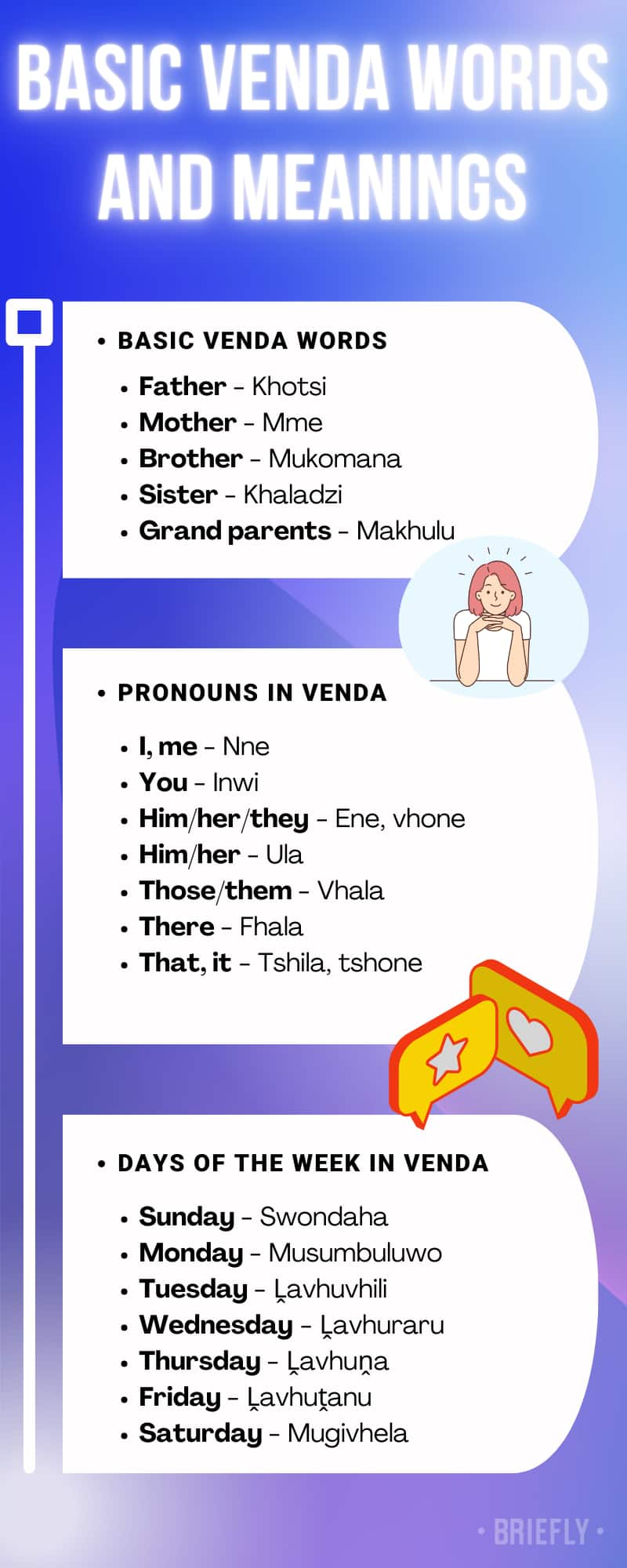
Source: Original
Communicating in Tshivenda is not as difficult, especially if you are keen on mastering vocal intonation. Learning these basic Venda terms goes a long way in helping you understand the language. Even though the first attempt might not be perfect, making it a habit to speak in the language will improve your mastery.
READ ALSO: Full list of Maskandi music artists 2022 | Top 10 best artists
Briefly.co.za recently published exciting details about the best Maskandi music artists. If you are interested in learning about the history of traditional Zulu music, consider going through this list. It does more than highlight the best Maskandi artists.
Maskandi music is one of the oldest genres of music in South Africa. Its evolution has witnessed the birth of legendary artists.
Source: Briefly News

